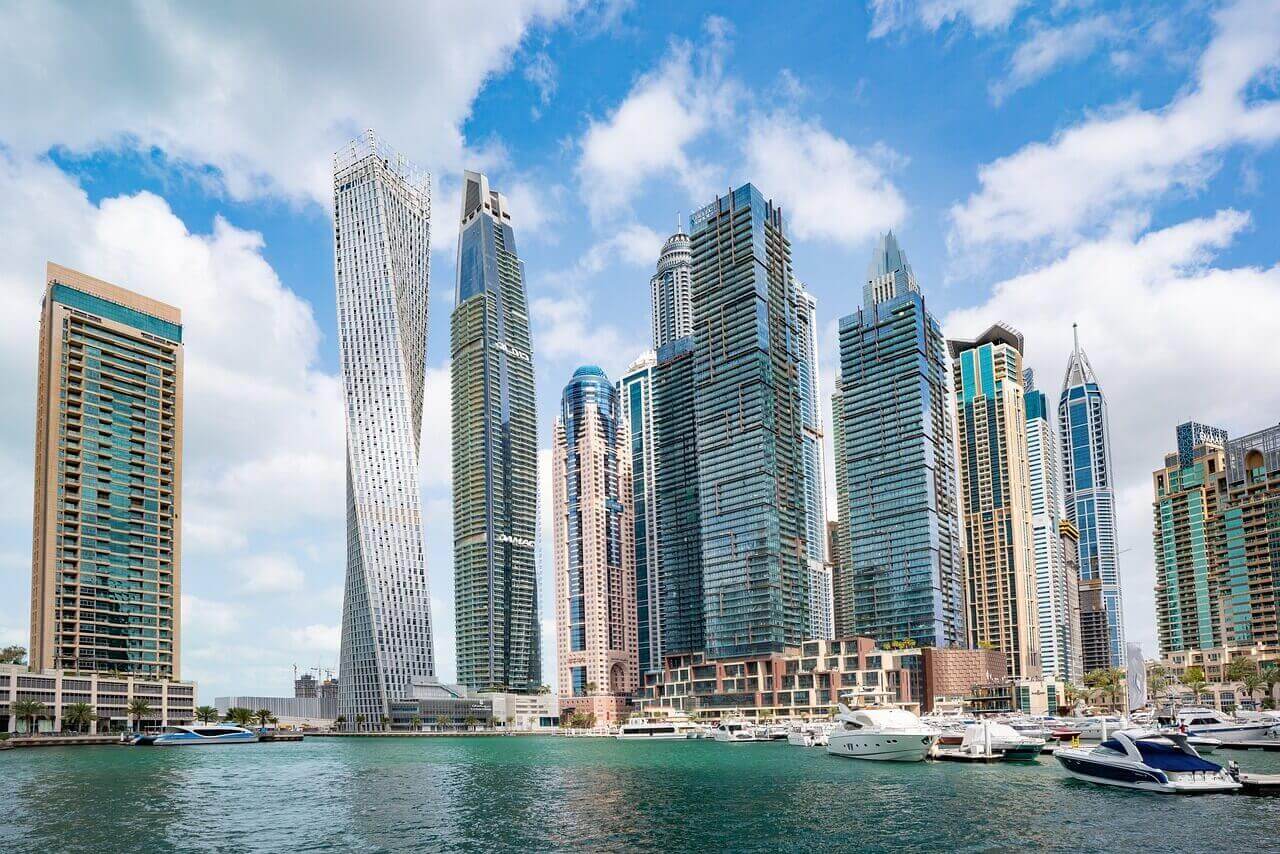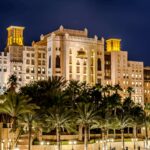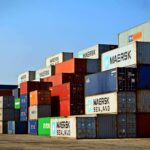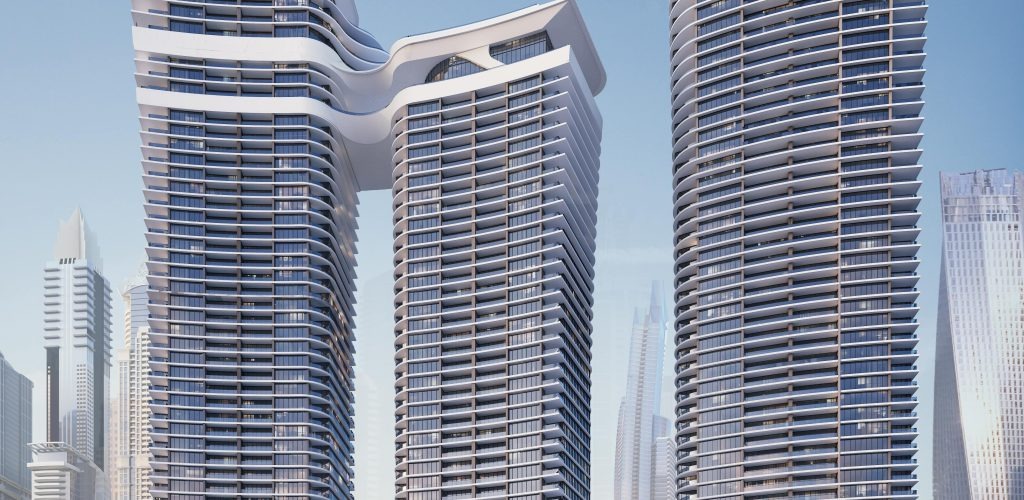Dubai, a city known for its opulence and architectural wonders, has witnessed a remarkable evolution in its real estate landscape. From being a humble fishing village to a global metropolis, this city has seen unparalleled growth and development in its Real Estate Agency in Dubai sector. In this article, History and Future of Real Estate Dubai,we will delve into the captivating History and Future of Real Estate Agency in Dubai market and also explore the exciting possibilities that lie ahead for its future. So buckle up as we start out on our exploration expedition!
The Evolution of Dubai’s Real Estate Landscape: History and Beginnings
History and Future of Real Estate Dubai journey can be traced back to its early days as a fishing and pearl diving village. Its strategic location on the Arabian Gulf made it a significant trading hub, attracting merchants and traders from across the region. As the years passed, Dubai started to diversify its economy, and the discovery of oil in the 1960s brought substantial wealth to the region. This newfound prosperity fueled the initial sparks of real estate development in the city.
The city’s traditional architecture featured courtyard houses and wind towers, designed to combat the scorching desert heat. However, as the city modernized, these architectural elements began to fade, making way for contemporary designs. The visionaries of Dubai envisioned a city that would stand out on the global stage, and thus began the ambitious journey of modern real estate development.
With the rise in oil revenues, Dubai embarked on ambitious projects, such as the Dubai World Trade Centre, which became the first skyscraper in the Middle East. This marked the beginning of Dubai’s fascination with tall buildings, setting the stage for future groundbreaking structures.
The Era of Skyline Transformations: Iconic Landmarks
The Burj Al Arab: A Sail in the Sky
One of the most iconic symbols of Dubai’s luxury and extravagance is the Burj Al Arab. Shaped like a billowing sail, this seven-star hotel stands tall on its private artificial island, redefining opulence in the hospitality industry. The Burj Al Arab became a testament to Dubai’s determination to create architectural marvels that captured the world’s attention.
The Palm Islands: Man-Made Wonders
Perhaps one of the most ambitious Real Estate Agency in Dubai projects in history, the Palm Islands are artificial archipelagos shaped like palm trees. Comprising Palm Jumeirah, Palm Jebel Ali, and Palm Deira, these engineering marvels added kilometers of coastline to Dubai, providing an array of waterfront properties, hotels, and leisure destinations. The Palm Islands showcased Dubai’s ability to transform dreams into reality on a grand scale.
The Burj Khalifa: Touching the Sky
The crown jewel of Dubai’s skyline, the Burj Khalifa, stands as the tallest building in the world. Its awe-inspiring height and modern design make it an architectural wonder. The Burj Khalifa is not just a building; it is a testament to Dubai’s ability to defy limits and reach for the sky. Standing at over 828 meters, the Burj Khalifa remains a symbol of Dubai’s audacious vision and determination.
Dubai’s Real Estate Today: An International Hub
Real Estate Agency in Dubai market today is a bustling international hub, attracting investors, entrepreneurs, and residents from all corners of the globe. The city’s strategic location, tax-free policies, and world-class infrastructure make it an enticing destination for business and leisure.
The residential sector in Property in Dubai offers a diverse range of properties, from luxurious penthouses overlooking the sea to charming townhouses nestled in serene communities. The city’s cosmopolitan atmosphere and family-friendly neighborhoods make it an ideal place to call home.
As a global commercial powerhouse, Property in Dubai’s free zones and business-friendly regulations have attracted multinational corporations, making it a regional hub for trade and commerce. The city’s strategic location between East and West has further bolstered its position as a global business center.
Property in Dubai’s tourism sector plays a pivotal role in the real estate market, with visitors flocking to the city for its stunning landmarks, world-class shopping, and vibrant entertainment scene. History and Future of Real Estate Dubai, The demand for hotel and short-term rental properties remains high, providing lucrative investment opportunities.
The Future of Dubai’s Real Estate: Embracing Sustainability
As Dubai looks ahead to the future, sustainability and eco-friendliness are at the forefront of its real estate vision. The city is committed to reducing its carbon footprint and embracing green initiatives. History and Future of Real Estate Agency in Dubai ,Several ambitious projects, such as the Dubai Sustainable City and the Dubai Green Belt, are shaping the city’s future as a sustainable metropolis.
The city’s real estate developers are increasingly incorporating eco-friendly designs, using sustainable materials, and implementing energy-efficient technologies. From green buildings to renewable energy projects, Dubai aims to lead the way in sustainable urban development.
In addition to environmental sustainability, Property in Dubai is also focusing on social and economic sustainability. Affordable housing projects and community development initiatives are part of the city’s long-term plan to ensure a balanced and inclusive real estate landscape.
Property in Dubai is committed to building a sustainable future, one green building at a time. History and Future of Real Estate Agency in Dubai. The city has embraced the concept of green buildings, which are designed to be energy-efficient, resource-saving, and environmentally responsible.
Green buildings in Property in Dubai incorporate innovative technologies such as solar panels, energy-efficient lighting systems, and smart meters. These features not only reduce energy consumption but also lower utility costs for residents and businesses, making green buildings a financially prudent choice.
One such notable example is the Dubai Frame, a towering structure designed to resemble a giant picture frame. The building uses advanced architectural techniques to maximize energy efficiency while providing a stunning view of the city’s skyline.
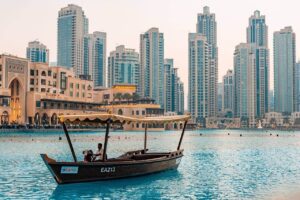
Eco-friendly Urban Planning
Dubai’s commitment to sustainability extends beyond individual buildings. The city’s urban planning efforts prioritize green spaces, pedestrian-friendly zones, and efficient public transportation systems.
The Dubai Creek Harbour development is a shining example of eco-friendly urban planning. Situated along the historic Dubai Creek, the project aims to create a harmonious blend of nature and modernity. With an emphasis on lush green spaces, waterfront promenades, and sustainable transport options, Property in Dubai Creek Harbour promises to be a model of sustainable urban living.
The Dubai Sustainable City
Perhaps one of the most ambitious sustainability projects in the region is the Property in Dubai Sustainable City. This innovative development is designed to be a self-sufficient and eco-friendly community, setting new standards for sustainable living.
The Dubai Sustainable City features solar-powered residential units, organic farms, and electric vehicle charging stations. The community’s commitment to environmental preservation extends to its waste management practices, with a focus on recycling and reducing carbon emissions.
The Dubai Green Belt
The Dubai Green Belt is another visionary project that aims to create a continuous belt of green spaces, parks, and natural habitats around the city. This extensive network of greenery will not only enhance the aesthetic appeal of Dubai but also provide vital ecological benefits.
The Green Belt will improve air quality, support biodiversity, and reduce urban heat island effects, making Dubai a more livable and sustainable city. This project aligns with the city’s goal of creating a greener and healthier environment for its residents.
Sustainable Luxury Real Estate
Dubai’s commitment to sustainability doesn’t mean compromising on luxury. The city’s real estate developers are incorporating eco-friendly practices into high-end projects, catering to the environmentally-conscious elite.
Luxury villas and penthouses in developments like Jumeirah Golf Estates and Mohammed Bin Rashid City are designed to be eco-conscious without compromising on opulence and comfort. These properties boast features such as rainwater harvesting systems, energy-efficient appliances, and sustainable landscaping.
LEED and BREEAM Certifications
To further demonstrate its commitment to sustainability, Dubai has adopted internationally recognized green building certifications. LEED (Leadership in Energy and Environmental Design) and BREEAM (Building Research Establishment Environmental Assessment Method) certifications are becoming increasingly prevalent in the city’s real estate projects.
Developers strive to attain these certifications, which validate their commitment to sustainable building practices and environmental responsibility. The certifications not only enhance the market value of properties but also contribute to Dubai’s reputation as a global leader in sustainable urban development.
A Greener Tomorrow
Dubai’s real estate landscape is undergoing a transformation, with sustainability at its core. As the city looks to the future, it aims to create a harmonious coexistence between urban development and the natural environment.
By embracing sustainable building practices, eco-friendly urban planning, and visionary projects like the Dubai Sustainable City and the Green Belt, Dubai is setting an example for other cities to follow.
The future of Dubai’s real estate is green, bright, and promising. As the city continues to evolve, it is committed to preserving its natural heritage while providing a thriving and sustainable urban environment for generations to come.
The Investment Climate: Attracting Global Interest
Dubai’s real estate market has always been an attractive destination for global investors. The city’s tax-free status, political stability, and investor-friendly regulations create a favorable environment for both individuals and corporations to invest in properties. The absence of personal income tax and capital gains tax further sweetens the deal for investors looking to grow their wealth.
Moreover, the city’s real estate sector offers impressive rental yields, making it an appealing choice for those seeking passive income streams. The high demand for rental properties, especially in prime locations, provides a steady income source for investors.
Dubai’s real estate market also benefits from the city’s status as a regional business and tourism hub. With millions of visitors arriving in Dubai every year for business and leisure purposes, short-term rental properties can generate substantial returns for investors.
Embracing Technological Advancements
Dubai’s real estate sector is also embracing technological advancements to streamline processes and enhance the overall experience for buyers, sellers, and tenants. Real estate agencies and developers are utilizing digital platforms and virtual tours to showcase properties, allowing potential buyers to explore homes from the comfort of their own spaces.
Block chain technology is gaining traction in Dubai’s real estate market, enabling secure and transparent property transactions. Block chain can also help in reducing paperwork and improving the efficiency of real estate processes.
Addressing Challenges: Market Adaptation
As with any real estate market, Dubai’s sector faces its share of challenges. The global economic downturn in 2008 had an impact on Dubai’s real estate market, leading to a temporary slowdown in property prices and demand. However, the city’s resilience and proactive measures implemented by the government quickly restored investor confidence, and the market bounced back stronger than ever.
In recent years, fluctuations in oil prices and geopolitical tensions in the region have posed challenges to Dubai’s real estate market. Nevertheless, the city’s diversification efforts, visionary leadership, and strong infrastructure continue to attract investors, ensuring steady growth in the sector.
The Road Ahead: A Promising Future
Dubai’s real estate landscape has come a long way since its humble beginnings. From traditional fishing villages to awe-inspiring skyscrapers, the city’s transformation has been nothing short of remarkable. As Dubai looks to the future, it remains committed to sustainable development and inclusive growth.
The city’s strategic plans, such as Expo 2020 and Vision 2030, focus on creating a knowledge-based economy, enhancing the quality of life for residents, and positioning Dubai as a global center for business, tourism, and innovation. These initiatives are expected to further drive the demand for real estate in the city, making it a promising investment destination.
The city’s real estate market will continue to evolve and adapt to global trends and changing demographics. The integration of smart technologies, sustainable practices, and investor-friendly regulations will ensure that Dubai’s real estate landscape remains competitive on the global stage.
Dubai’s real estate landscape has come a long way since its humble beginnings. Today, as we look to the future, the city’s real estate market is poised for even more remarkable growth and development. Dubai’s visionary leadership and strategic planning have set the stage for an exciting and promising future.
Smart City Initiatives
Dubai is leading the way in becoming a smart city, where advanced technologies and data-driven solutions are integrated into daily life. In the real estate sector, this means the implementation of smart infrastructure and digital innovations to enhance the overall living experience.
Smart homes equipped with IoT devices, automated systems, and energy-efficient features are becoming more prevalent in Dubai. These homes offer residents greater control over their living spaces and contribute to reducing energy consumption, making them an attractive option for environmentally-conscious buyers.
Expo 2023: A Catalyst for Growth
Expo 2023, the largest event to be held in the Arab world, is set to be a game-changer for Dubai’s real estate market. The event will attract millions of visitors from around the globe, sparking increased demand for hospitality and short-term rental properties.
Beyond the immediate boost in tourism, Expo 2023 will leave a lasting legacy in the form of new infrastructures, improved transportation systems, and enhanced urban planning. These developments will continue to drive real estate growth in the years to come.
Sustainable Development
Sustainability remains at the heart of Dubai’s vision for the future. History and Future of Real Estate Dubai. The city aims to reduce its carbon footprint and achieve environmental balance through various initiatives.
Green building practices and eco-friendly designs are becoming the norm in Dubai’s real estate landscape. Developers are incorporating renewable energy sources and energy-efficient materials to construct eco-conscious properties.
The Dubai Sustainable City is a prime example of the city’s commitment to sustainable development. This self-sufficient community is designed to minimize energy consumption and carbon emissions, creating a model for future eco-friendly projects.
Affordable Housing Initiatives
As Dubai continues to attract global investors and high-net-worth individuals, it also recognizes the importance of providing affordable housing for its growing population. The government has introduced various initiatives to address this need and ensure social and economic sustainability.
Public-private partnerships are being formed to develop affordable housing projects, offering reasonably priced accommodations to citizens and residents. These initiatives not only cater to the needs of the local population. But also contribute to a more inclusive and balanced real estate market.
Expo 2023 District: A New Business Hub Dubai
With the successful bid to host Expo 2023. Dubai has strategically planned the Expo 2023 District as a hub for business innovation. The district will be home to the expo site. And several other developments that will leave a lasting impact on the city’s economic landscape.
The expansion of Dubai South, a key area within the district, will house logistics, aviation, and trade-related businesses. Cementing Dubai’s position as a global business and trade hub. This development will attract investors and entrepreneurs, driving demand for commercial and residential properties in the area.
Luxury Real Estate: Setting New Standards
Dubai’s reputation for luxury real estate is set to soar to new heights in the future. The city is continually pushing the boundaries of architectural design and opulent living.
History and Future of Real Estate Dubai, iconic landmarks. The Burj Khalifa and Burj Al Arab, developers are creating ultra-luxurious residences with unmatched amenities and services. These exclusive properties cater to the discerning tastes of high-net-worth individuals and global elite. Enhancing Dubai’s status as a top luxury real estate destination.
Embracing Diversity and Inclusivity
Dubai’s real estate market has always been a melting pot of cultures and nationalities. Attracting individuals from all walks of life. This diversity is set to continue shaping the city’s real estate landscape in the future.
Inclusivity and accessibility are paramount in Dubai’s future real estate projects. Neighborhoods will be designed to accommodate various demographics, fostering a sense of community and belonging.
A Strong Regulatory Framework
Dubai’s real estate sector is supported by a robust regulatory framework that promotes transparency and investor confidence. The Dubai Land Department (DLD) plays a crucial role in overseeing property transactions and ensuring fair practices.
The city’s legal system is also investor-friendly, providing protection and security for property owners. The combination of a strong regulatory environment and visionary leadership enhances Dubai’s attractiveness as a global real estate investment destination.
History and Future of Real Estate: Conclusion
History and Future of Real Estate Dubai has traversed an extraordinary journey, from humble beginnings to awe-inspiring skyscrapers. The city’s visionaries and leaders have transformed it into a global metropolis that captures the world’s imagination. As Dubai embraces sustainability and looks to the future. Its real estate market continues to be a beacon of growth and opportunity. You’re an investor, resident, or visitor. Dubai’s real estate market offers a world of possibilities that blend luxury, innovation, and sustainability. So, come and be a part of Dubai’s thriving real estate landscape, where dreams become a reality.
History and Future of Real Estate: FAQs
Q: What is the driving force behind Dubai’s real estate boom?
A: Factors such as Dubai’s strategic location fuel the real estate boom in the city. Business-friendly environment, tax-free policies, and visionary leadership.
Q: Are there any restrictions on foreigners purchasing property in Dubai?
A: Foreigners are allowed to purchase property in designated areas of Dubai. Making it a popular choice for international investors.
Q: How has Dubai’s real estate market adapted to the pandemic?
A: The real estate market in Dubai has shown resilience during the pandemic, with increased demand for spacious properties. And a shift towards digital transactions.
Q: What are some upcoming mega-projects in Dubai’s real estate sector?
A: Dubai Creek Harbour, Dubai South, and Jumeirah Central are among. The exciting upcoming mega-projects that promise to reshape the city’s skyline.
Q: How does Dubai’s real estate sector contribute to its economy?
A: Dubai’s real estate sector plays a significant role in the city’s economy. Contributing to GDP growth, job creation, and attracting foreign investment.
Q: What makes Dubai an attractive destination for property investors?
A: History and Future of Real Estate Dubai tax-free environment. World-class infrastructure, political stability. And high rental yields make it an attractive destination for property investors.
